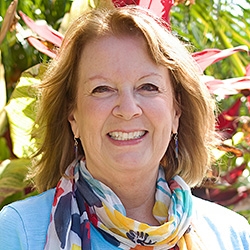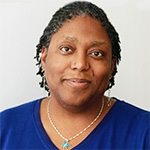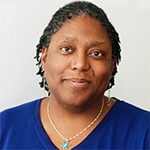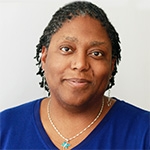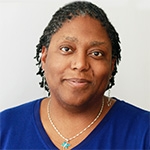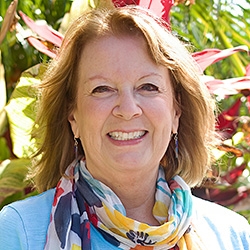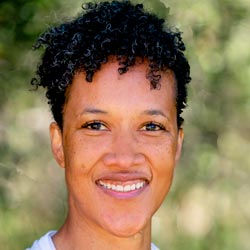
Search Results: marginalization
-
Trainer Tip: "Power over" refers to using power, coercion, fear or authority to force change. It rarely brings lasting change. "Power with" refers to power that seeks to meet everyone’s needs. A "power with" system values input and needs of everyone who will be affected by decisions. When you notice you're using a power over paradigm to get results, shift focus to power with. Notice how this shift in consciousness affects results.
-
The American mythos of Independence Day is that liberty, equality, and opportunity are for all. Yet since the country's formation, these needs have been for some at the expense of others. It started with the brutal robbery and genocide of Native Americans and slavery of Africans. And this theme continued for generations in various forms, including how we related to other peoples, countries, and the ecosphere. To achieve true justice, liberty, and opportunity for all we may need to overcome the ego's sense of separation. Compassionate noncooperation may also be key.
-
In a workshop, a hesitant white neurodivergent man faced a triggering reaction from a Global Majority transgender man. Uncovering their backgrounds, the facilitator addressed family dynamics and exclusion. A repair exercise fostered empathy, challenging assumptions and emphasizing the importance of equitable facilitation for a richer group experience.
-
There are times when someone judges us, or meets us with prejudice, and its easier for us to respond by hating them, or judging ourselves as not good enough. How can we love another person instead without excusing their actions? Roxy tells us her story with wonderment, grief and mourning.
-
When we're on the receiving end of pain-stimulating assumptions, a microaggression, or prejudice --when we're reactive and resultingly have self-doubt, guilt or shame in ourselves-- is it possible to be intensely authentic while holding care for everyone in the situation? Can we effectively do this even as a third party witnesses to these things? Self-empathy, empathy, and a commitment to authenticity have become essential tools I need to keep sharpened in my toolbox if I am to show up and do the work I value in this world.
-
Who are you not use to caring about? Is it those you classify as "other"? Those you disagree with? The lower class? People in power? Those who inflict harm? Yourself? To include everyone's needs fully, not instead of your needs, can transform the either/or paradigm. It can also help us to go beyond so-called "codependency". And it can support us all to live more sustainably on this planet.
-
Our everyday personal experiences of diminishment, and the destruction of our planet has a through-line. Societal traumas lead to us shutting down to avoid pain, and this limits us. The avoidance shifts our brains so we don’t see other beings, species and our planet as wondrous, precious and irreplaceable. Thus, we meet others with diminishment, oblivion, or abuse; trauma keeps passing on. This leads to being blind and mute, and to othering based on social location, and to destruction of our planet.
-
When we have privilege, we can have access to resources resulting from legal or social norms related to membership in a group -- independent of any (in)action, awareness of the disparity, the potential benefits to us, or the costs to others. Unhelpful ways of engaging with privilege are: denial/invisibility, guilt/shame, defensiveness, and entitlement. Helpful ways of engaging are: owning privilege, learning about privilege, opening to feedback, and stewarding privilege for benefit of all. To be helpful we need to engage with necessary (rather than unnecessary) discomfort.
-
The notion of "micro-aggressions" may be levied by those in the dominant class - for example white folks may talk about receiving micro-aggressions when a (legitimately) angry BIPOC references them as "white". This shuts down the conversation and feeds a myth that everyone's pain about race is equal. It doesn't foster dialogue that moves us towards a more equitable, compassionate world. Read on for more about the complexity.
-
What can we do when someone tells us we're contributing to a pattern we're genuinely not seeing (nor experiencing)? What makes these patterns visible to some people but not others? This article addresses these things by talking about what to factor in when receiving feedback; handling feedback; responding relationally; paying attention to social location; considering impact; plus, broadening our perspective to bring in greater care and awareness.
-
In learning how to re-invent the economic system so that it distributes resources in a way that includes as many people's needs as possible, we would need to be in a process of mutual influence with one another. However, addressing resource distribution can be complex when people in different social locations have 1.)a different sense of what's considered "enough" 2.) different capacities to find creative strategies that work within the given limitations, and 3.)different levels of self-doubt, shame and capacity to put their concerns and needs on the table. Can we collectively create conditions that support people to stretch productively so that included in the outcome are the needs, perspectives, ideas, and concerns of people who are less powerful? What needs to be in place to support the way towards a better future?
-
If we are in the dominant group, intervening to prevent violence or an "ouch" is a way to ally with marginalized folks. We can intervene to meet their needs, rather than our own. In other words, we can intervene without putting our experience at center stage. To that end, here are six ways to ask if an intervention is welcome.
-
- Explore how gender power dynamics impact everyday interactions
- Learn how to navigate these complexities with curiosity and compassion
- Gain the skills to build inclusive personal and professional environments
- Contribute to a world where every voice matters!
-
If you’ve ever dreaded attending a meeting – or watched in dismay as your group collapses into conflict – know that a methodology known as Convergent Facilitation offers you possible solutions. It’s based on one simple experience: that people come together at the level of their underlying principles, needs, aspirations, and dreams, not at the level of their surface positions.
Convergent Facilitation is a highly efficient decision-making process developed by Miki Kashtan from the principles of Nonviolent Communication. It enables you to look beneath the surface and find the essence of what’s important to different stakeholders, and bring it together into one set of principles that lead to proposals and ultimately decisions. As a result, it readily produces solutions and decisions that everyone can embrace.
-
- Learn the complexities of intersectionality
- Gain a deeper understanding of the affects of differing life experiences
- Clear the way for a more authentic connection
- Deepen your ability to hold others in compassion
-
Hi friends, My name is Itzel and I’m happy for this opportunity to share a bit about myself and how I came to teach NVC. I was an activist before I knew what the word meant. When I was a child, I often argued with the adults around me about what I thought was “right.” If I had a nickel for every time a grown-up said to me, “You should be a lawyer,” I probably would’ve collected enough money to pay for the law school education that I eventually got. I left my traditional legal career path after more than a decade to become a...
-
Hello friends. I’m Roxy Manning. When Mary invited me to write this letter, I could not help but reflect on what has been most alive for me recently… the way many of us will easily help someone else, but fear to ask for help for ourselves. On December 4, I had an operation. My doctor predicted my recovery would take three weeks. As I prepared for the time off, I rushed to complete all of my work and personal commitments. I prepped and froze dishes so I would have things to eat after and arranged meal deliveries. Very few people knew I was having an operation and I reached out to only one person for support after. In hindsight, I was doing everything I could so...

